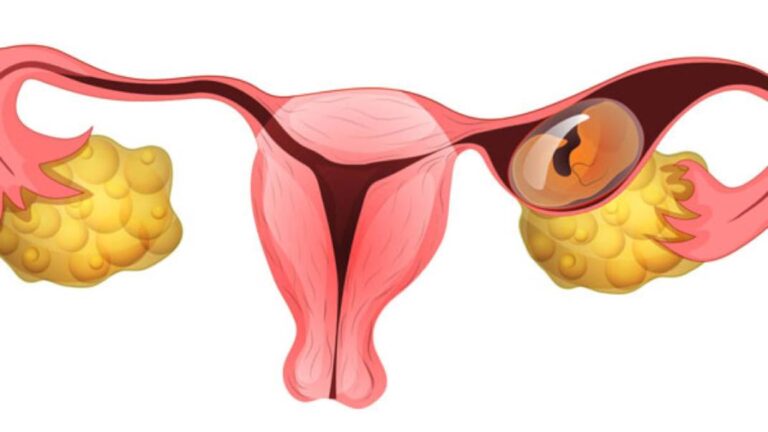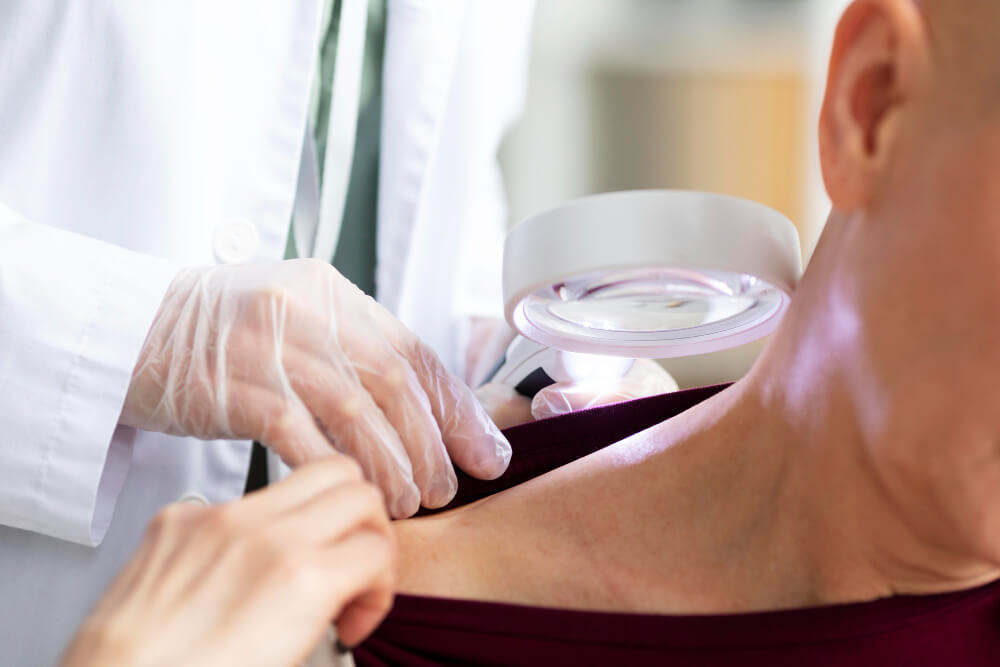
Ectopic Pregnancy
Ectopic Pregnancy:
Pregnancy normally occurs inside the uterus, after fertilization takes place within the fallopian tube (the tube that carries the eggs). The fertilized egg then travels to the uterus where it implants and nests within the uterine lining, which is prepared to receive the fertilized egg and support the growth of the embryo inside. But what happens if the fertilized egg does not reach the uterus? Does pregnancy still occur.
Ectopic pregnancy is defined as the growth of a fertilized egg (embryo) outside the uterus. It can occur in the fallopian tube, which is the most common site for ectopic pregnancy, or in the abdomen, ovaries, cervix, or broad ligament. These locations are all unsuitable for the fertilized egg to develop into an embryo, both in terms of space and necessary nourishment for the embryo. This can result in the rupture of the organ it is located in, leading to miscarriage. In fact, ectopic pregnancy can cause severe bleeding and put the mother's life at risk. Ectopic pregnancy outside the uterus does not progress to a live birth.
But what causes ectopic pregnancy:
Risk factors for ectopic pregnancy include: previous ectopic pregnancy, previous fallopian tube surgery where the muscle or cilia of the fallopian tube is damaged or there is an increase in its length (congenital abnormality), previous pelvic or abdominal surgery, certain sexually transmitted infections, pelvic inflammatory disease (infection of the uterus, fallopian tubes, and nearby pelvic structures), and presence of endometrial tissue in abnormal locations (a medical condition known as endometriosis, which involves the presence of uterine tissue in places such as the ovaries).
Other factors include: smoking, age over 35 years, history of infertility, and use of assisted reproductive techniques.

Symptoms and signs of ectopic pregnancy:
Diagnosing ectopic pregnancy can be challenging because the symptoms often resemble those of early normal pregnancy. These may include missed menstrual period, breast tenderness, nausea, vomiting, fatigue, or frequent urination.Other factors include: smoking, age over 35 years, history of infertility, and use of assisted reproductive techniques.
At this stage, you may not know if you are actually experiencing an ectopic pregnancy, but as the pregnancy progresses, more severe symptoms may occur such as sudden and severe abdominal or pelvic pain, shoulder pain, weakness, dizziness, or fainting.
If there is a rupture in the fallopian tube or other tissues where the fertilized egg has implanted, there may be severe and life-threatening bleeding. Therefore, when experiencing these symptoms, it is important to seek immediate medical attention.
Diagnosing ectopic pregnancy:
If you have symptoms of pregnancy with a history of previous ectopic pregnancy or a family history of it, or if you are experiencing severe pelvic pain, your doctor may request:
A pelvic exam, an ultrasound scan to determine the location of the developing pregnancy (sometimes the pregnancy may be too small to be seen on ultrasound until more than 5 or 6 weeks after a woman's last menstrual period), blood tests to measure human chorionic gonadotropin (hCG) hormone levels known as the pregnancy hormone. A woman may need to have this test repeated every few days if initial tests cannot confirm or rule out an ectopic pregnancy.
How is ectopic pregnancy treated:
In the confirmed diagnosis of ectopic pregnancy, the doctor will determine the treatment based on the location and size of the pregnancy. The doctor may opt for treatment through the injection of methotrexate, but taking methotrexate can have some side effects (most women experience some abdominal pain. Vaginal bleeding may also occur, along with other symptoms including nausea, vomiting, diarrhea, dizziness, due to the absorption of other tissues by the woman of methotrexate.
If the pregnancy is further along, doctors usually need to perform a surgical procedure to remove the ectopic pregnancy (done through laparoscopy). The surgical procedure carries some effects and complications such as pain, fatigue, bleeding, and infection. Talk to your doctor for more details. The risk of fallopian tube rupture does not disappear until treatment is completed, so you should continue to see your gynecologist regularly to ensure that pregnancy hormone levels return to zero. This may take several weeks. A high level may indicate that some tissue has been left outside the uterus. If so, you may need more methotrexate or surgery.
There are some instructions you should follow during methotrexate treatment:
- Avoid lifting heavy weights
- Stay away from sexual intercourse
- Avoid drinking alcohol
- Avoid vitamins and foods containing folic acid, including fortified cereals, enriched bread, pasta, peanuts, dark leafy green vegetables, orange juice, and beans.
- Medically prescribed pain relievers and non-steroidal anti-inflammatory drugs (NSAIDs), such as ibuprofen.
- Gas-producing foods that can cause discomfort and mask potential fallopian tube tear pain.
- Prolonged exposure to sunlight. Methotrexate can cause sun sensitivity.



